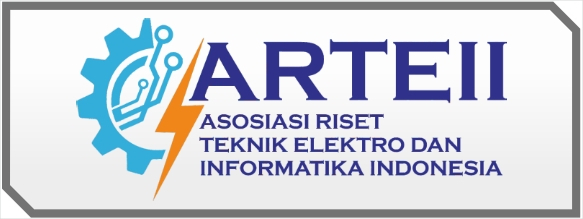Digital Leadership and IT Strategy Execution in Emerging Economies
DOI:
https://doi.org/10.61978/data.v2i4.703Keywords:
IT Strategy Formulation, Digital Transformation, Strategy Implementation, Digital Leadership, Organizational Innovation, Policy Alignment, Developing CountriesAbstract
Digital transformation has emerged as a critical driver for organizational success in today’s rapidly evolving technological landscape. This narrative review aims to explore how IT strategy is formulated and implemented in digital enterprises, particularly within developing countries. Using a systematic literature search across Scopus, IEEE Xplore, and Google Scholar, studies were selected based on thematic relevance, quality, and citation impact. Keywords included "IT strategy formulation," "digital transformation," and "strategy implementation," combined through Boolean operators to refine search results. The review reveals that strategic frameworks such as the Ward and Peppard model and SECI model facilitate alignment between IT and business objectives. Internal organizational factors—notably leadership, culture, and technological readiness—play a pivotal role in enabling successful strategy formulation. Externally, government policies, infrastructure availability, and stakeholder influence significantly shape implementation outcomes. Agile methodologies, data-driven decision-making, and collaborative leadership emerged as critical practices in digital strategy execution. Conversely, barriers such as resistance to change, regulatory inertia, and limited digital competencies hinder progress, particularly in SMEs and public institutions. This review highlights the need for integrative and adaptive strategies that account for socio-technical and contextual complexities. It underscores the importance of inclusive governance and policy alignment to support digital innovation. Future research should investigate underexplored regional and sectoral contexts to develop holistic frameworks that support sustainable digital transformation across diverse organizational landscapes
References
Ai, K., Zhang, W., & Yan, X. (2024). Digital economy and urban low-carbon transition: Theoretical model and new mechanisms. Sustainability, 16(14), 5917. https://doi.org/10.3390/su16145917 DOI: https://doi.org/10.3390/su16145917
Araujo, W., & Andrade, C. (2022). Egov strategy formulation taking into account international rankings: Application of a method in an African country., 549–551. https://doi.org/10.1145/3560107.3560316 DOI: https://doi.org/10.1145/3560107.3560316
Athaide, G., Jeon, J., Raj, S., Sivakumar, K., & Xiong, G. (2024). Marketing innovations and digital technologies: A systematic review, proposed framework, and future research agenda. Journal of Product Innovation Management, 42(1), 144–165. https://doi.org/10.1111/jpim.12741 DOI: https://doi.org/10.1111/jpim.12741
Au‐Yong‐Oliveira, M., Marinho, C., & Chkoniya, V. (2024). The nexus story and its stakeholder analysis: Digitalising multimodal logistics and the associated value chain worldwide. European Conference on Innovation and Entrepreneurship, 19(1), 71–80. https://doi.org/10.34190/ecie.19.1.2700 DOI: https://doi.org/10.34190/ecie.19.1.2700
Bai, F., Shang, M., Huang, Y., & Liu, D. (2023). Digital investment, intellectual capital and enterprise value: Evidence from China. Journal of Intellectual Capital, 25(1), 210–232. https://doi.org/10.1108/jic-07-2022-0149 DOI: https://doi.org/10.1108/JIC-07-2022-0149
Bolisani, E., & Scarso, E. (2015). Strategic planning approaches to knowledge management: A taxonomy. Vine, 45(4), 495–508. https://doi.org/10.1108/vine-01-2015-0005 DOI: https://doi.org/10.1108/VINE-01-2015-0005
Chang, X., Gourriérec, C., Hild, F., & Roux, S. (2024). Brightness and contrast corrections for stereocorrelation. Mechanical Systems and Signal Processing, 208, 111057. https://doi.org/10.1016/j.ymssp.2023.111057 DOI: https://doi.org/10.1016/j.ymssp.2023.111057
Iastremska, O., Rudych, А., Būmane, I., Hazukin, A., Zdolnyk, V., & Kukhta, P. (2024). Management of innovative development of enterprises in the conditions of digitalization: Strategy modeling. Naukovyi Visnyk Natsionalnoho Hirnychoho Universytetu, (2), 194–200. https://doi.org/10.33271/nvngu/2024-2/194 DOI: https://doi.org/10.33271/nvngu/2024-2/194
Jammulamadaka, N. (2020). Enabling processes as routines that facilitate cognitive change. Management Decision, 59(3), 653–668. https://doi.org/10.1108/md-09-2019-1311 DOI: https://doi.org/10.1108/MD-09-2019-1311
Liepert, M. (2024). Increasing the EBITDA of private equity portfolio company through digital enablement. Economics of Development, 23(1), 70–77. https://doi.org/10.57111/econ/1.2024.70 DOI: https://doi.org/10.57111/econ/1.2024.70
Liu, Y., & Li, M. (2025). Intelligent development of high-end equipment sub-industries: Digital innovation ecosystem analysis. Management Decision. https://doi.org/10.1108/md-01-2024-0084 DOI: https://doi.org/10.1108/MD-01-2024-0084
Lv, K., Zhao, Y., Zhu, S., & Zhu, L. (2024). Enterprise digital transformation and labor structure evolution: Evidence from China. Chinese Management Studies, 19(3), 702–733. https://doi.org/10.1108/cms-09-2023-0485 DOI: https://doi.org/10.1108/CMS-09-2023-0485
Lynd, D., & Harne, R. (2017). Strategies to predict radiated sound fields from foldable, Miura-ori-based transducers for acoustic beamfolding. The Journal of the Acoustical Society of America, 141(1), 480–489. https://doi.org/10.1121/1.4974204 DOI: https://doi.org/10.1121/1.4974204
Morales, P., Haique, A., Cortez, E., Filippa, L., & Adra, R. (2024). Determining factors in the implementation of Industry 4.0 in Argentine SMEs. Journal of Technology Management & Innovation, 19(1), 66–78. https://doi.org/10.4067/s0718-27242024000100066 DOI: https://doi.org/10.4067/S0718-27242024000100066
Nielsen, M., & Ali, W. (2021). Governing and monitoring the digital transformation: Assessing the Qatari experience since 2003., 246–253. https://doi.org/10.1145/3494193.3494227 DOI: https://doi.org/10.1145/3494193.3494227
Osah, U., & Khene, C. (2022). Designing strategy formulation in the midst of uncertainty in digital citizen engagement: A critical reflection of the application of design science research augmented by soft systems methodology to the design of strategy formulation. The Electronic Journal of Information Systems in Developing Countries, 89(3). https://doi.org/10.1002/isd2.12247 DOI: https://doi.org/10.1002/isd2.12247
Rabbi, M., Amin, M., Al‐Dalahmeh, M., & Abdullah, M. (2025). Assessing the role of information technology in promoting environmental sustainability and preventing crime in e-commerce. International Review of Applied Sciences and Engineering, 16(1), 81–97. https://doi.org/10.1556/1848.2024.00834 DOI: https://doi.org/10.1556/1848.2024.00834
Wang, M., Yuan, R., Guan, X., Wang, Z., Zeng, Y., & Liu, T. (2024). The influence of digital platform on the implementation of corporate social responsibility: From the perspective of environmental science development to explore its potential role in public health. Frontiers in Public Health, 12. https://doi.org/10.3389/fpubh.2024.1343546 DOI: https://doi.org/10.3389/fpubh.2024.1343546
Weil, M., Spinler, K., Lieske, B., Dingoyan, D., Walther, C., Heydecke, G., … & Aarabi, G. (2023). An evidence-based digital prevention program to improve oral health literacy of people with a migration background: Intervention mapping approach. JMIR Formative Research, 7, e36815. https://doi.org/10.2196/36815 DOI: https://doi.org/10.2196/36815






